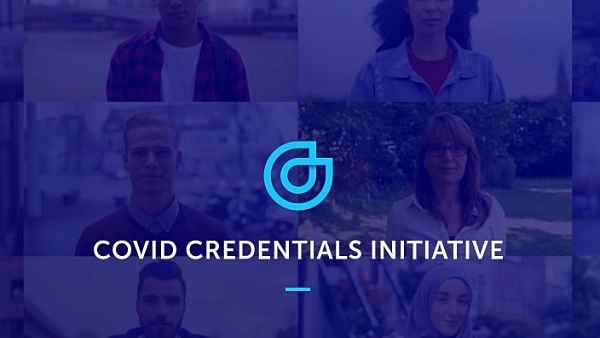
The certificate allows individuals to demonstrate (and request evidence from others) that they have recovered from the new coronavirus, tested positive for antibodies or received vaccination, when available.
More than 60 organizations in the SSI space participate in the project, such as Evernym, Streetcred, esatus, TNO, Georgetown University and others. The initiative also has a global diffusion with Consulcesi in Italy, DIDx in South Africa, TrustNet in Pakistan and Northern Block in Canada.
These digital certificates would be issued by healthcare institutions but controlled by the user and shared peer-to-peer. (A common misconception is that self-sovereign means self-attestation, which eliminates the need for governments and other authorities; trust in the creditor issuer is paramount, an Evernym spokesman said.) The world of technology agrees on the need for some type of digital certificate.
A 'human-centric' system
Among the solutions implemented so far for pandemic monitoring and control, privacy and data protection of citizens have been neglected despite the reassurances issued by the authorities.
SSI can provide an alternative route with less onerous compromises. "The technology we're building is human-centered," said Jamie Smith, director of Evernym's strategic project.
“It's really the opposite of the surveillance-focused solutions we've seen in places like China. Very government-focused solutions have serious implications for citizen privacy.
“The most appropriate approach, said Smith, must be an open ecosystem where multiple interoperable solutions exist, a common framework in many regions. However, this can also lead to intellectual property (IP) disputes, a possibility that CCI says it intends to resolve
The role of the blockchain is extremely important but "subtle"
The SSI manufacturer Evernym uses the Hyperledger Indy blockchain protocol related to Linux, but the CCI project itself is "ledger-agnostic". SSI and verifiable credentials create a triangle of trust between the issuer of a credential, the holder of that credential and a verifier.
It is a system that puts the keeper at the center of things, rather than a boring push and pull between the issuer and the verifier. It also gives theinvestor the power to choose what he wants to share and with whom.
Basically, it's a decentralized DLT architecture, but it doesn't involve running a lot of data on the blockchain. "The role of the blockchain is extremely important, but it is subtle," said Drummond Reed, Evernym's Chief Trust Officer.
"The tricky part of public key infrastructure (PKI) is how you can actually prove it's someone's public key," said Reed. "The solution has always been a centralized service provider called a certification authority." In this case, the blockchain will act as a decentralized public key directory rather than leaving the task to a centralized service.
